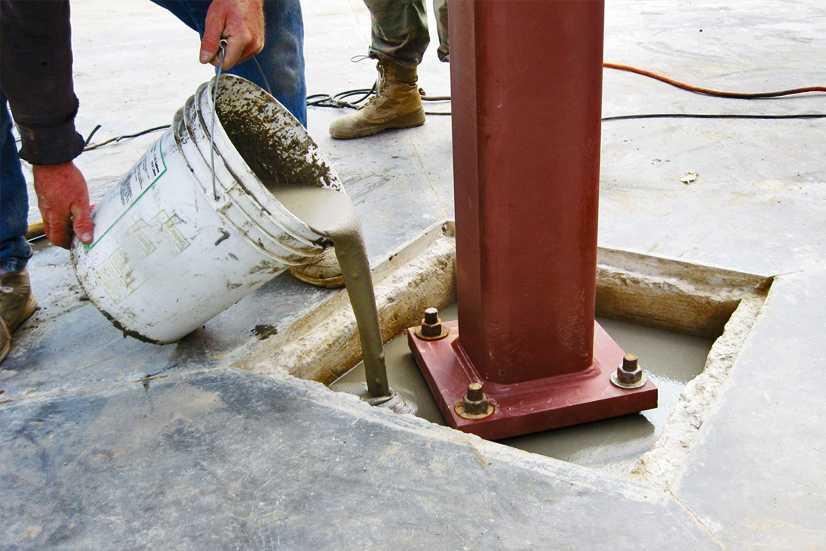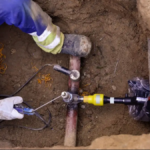Plumbing renovations, at times, may require thinking outside the box. Should soil instability, aging infrastructure, and other issues arise, grouting supplies become indispensable. Whether you need to seal manholes, repair joints, or reinforce soil, chemical grouting can give you the results you need.
But what makes chemical grouting so effective, and how can you leverage it for your next plumbing renovation? Let’s explore its applications and benefits.
Applications of Chemical Grouting in Plumbing
Chemical grouting offers versatility. Using this method involves injecting specialized grout materials into targeted areas. Once applied, it forms a waterproof seal or reinforces structural stability.
- Sealing Leaks: Chemical grouting is effective for stopping water infiltration in pipes, tanks, and underground structures.
- Soil Stabilization: It improves the bearing capacity of soil, making it a valuable solution for trenchless plumbing projects.
- Rehabilitation of Old Systems: Chemical grouting extends the lifespan of aging plumbing systems by repairing cracks and joints without excavation.
“Chemical grouting has transformed how we approach plumbing repairs. It’s a reliable, minimally invasive method that delivers durable results,” says a seasoned plumbing consultant.
How Chemical Grouting is Used for Manhole and Joint Sealing
Manhole and joining sealing are common challenges to plumbing and wastewater management. This is how chemical grouting can be used to address them:
Manhole Sealing
Manholes are prone to water infiltration, which can lead to system failures and contamination. Injecting chemical grout into the surrounding soil or structure helps create a watertight barrier that prevents leaks and reinforces the manhole’s integrity.
Joint Sealing
Pipes and joints allow water to escape or enter when they are cracked. Chemical grouting can fill voids, restoring the joint’s original strength and preventing future issues.
Avanti chemical grouting products are especially effective for these two challenges, providing a durable and long-lasting seal that can withstand water flow and soil shifts.
Advantages of Chemical Grouting
Chemical grouting is durable and cost-effective. Here’s why it’s a preferred method for plumbers:
- Durability: Polyurethane or acrylate gels—active ingredients in chemical grouting—are designed to withstand pressure, temperature fluctuations, and environmental stressors.
- Versatility: Whether sealing leaks or stabilizing soil, chemical grouting adapts to a wide range of plumbing applications.
- Quick Application: Most grouting processes can be completed within hours. This helps minimize disruption to ongoing projects.
- Cost-Effectiveness: Compared to excavation or pipe replacement, chemical grouting is far more affordable, saving time and labor costs.
“Choosing the right grouting supplies ensures not only immediate results but also long-term performance,” notes a product specialist.
Best Practices for Choosing Grouting Supplies
Chemical grouting’s effectiveness depends heavily on product quality. To achieve optimal results, it’s essential to procure your supplies from a trusted seller who specializes in industry-grade materials.
Here are some key considerations when selecting grouting supplies:
- Material Type: Match the grout material to the specific application. Polyurethane is ideal for soil stabilization, while acrylates work well for fine crack sealing.
- Compatibility: Ensure the grout is compatible with the structure’s material, whether concrete, clay, or PVC.
- Supplier Reputation: Work with suppliers known for quality control and reliable customer support.
- Environmental Impact: Choose eco-friendly grout formulations to minimize environmental risks during application.
By prioritizing these factors, you can enhance the success of your grouting projects and ensure compliance with industry standards.
Why Chemical Grouting Matters for Trenchless Rehabilitation
Trenchless plumbing methods are becoming increasingly popular due to their minimal surface disruption. Chemical grouting complements these techniques, addressing structural integrity issues sans extensive digging.
In a pipe-bursting or cured-in-place pipe (CIPP) repair, for instance, chemical grouting can be used to stabilize surrounding soil or seal joints. This helps secure new infrastructure. This synergy between trenchless methods and chemical grouting supplies reduces project timelines and costs while delivering durable solutions.
The Cost of Overlooking Chemical Grouting
Failing to use chemical grouting in situations that demand it can lead to consequences like:
- Accelerated wear and tear on plumbing systems.
- Persistent leaks that compromise structural integrity.
- Higher repair costs due to repeated failures or unnecessary excavation.
Investing in high-quality grouting supplies and working with trained professionals not only resolves immediate issues but also safeguards your plumbing systems against future problems.
Chemical grouting is a cornerstone of modern plumbing renovations, offering a reliable and cost-effective way to address common challenges. From manhole sealing to soil stabilization, its applications are as diverse as its benefits.
If you’re ready to elevate your plumbing projects, start by sourcing high-quality grouting supplies from trusted providers. Seek advice from experts, ensure proper application techniques, and experience the long-lasting advantages of this innovative solution.
Are you ready to embrace the power of chemical grouting? Let us know how you plan on using this modern marvel in the Comments.






